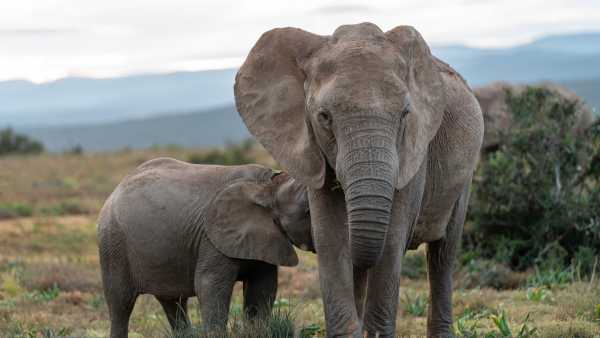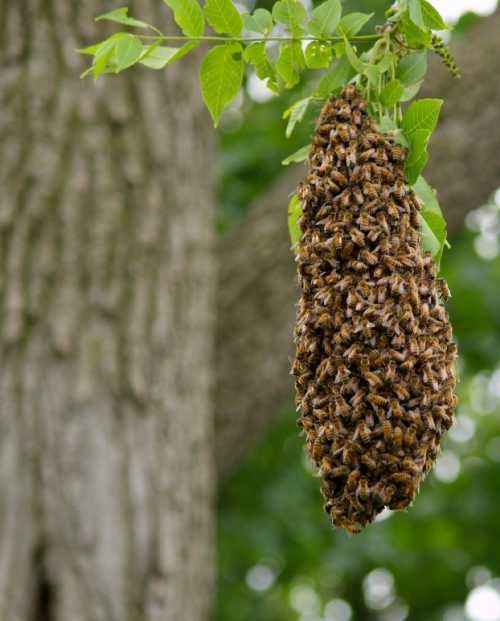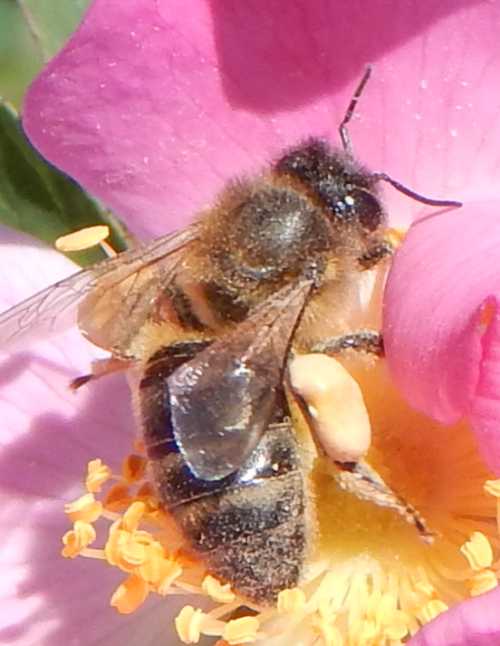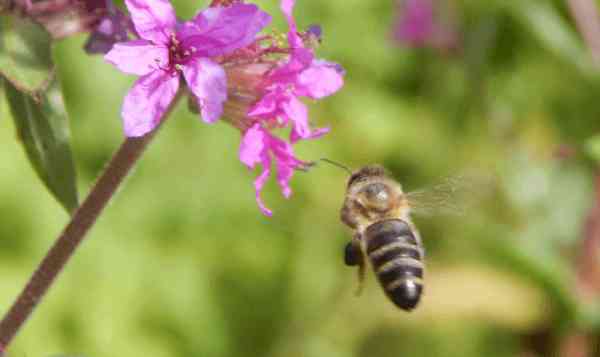Why Elephants Are Afraid Of Bees - And How Bees May Help Save Elephants!
How honey bees are helping to save Africa’s elephants, and why elephants fear bees
Updated: 28th January 2021
I thought it was about time I wrote a few lines about
this wonderful project I learned of some time ago, namely, how African honey
bees are helping to save elephants – and merely by their presence!
Of course, we – especially in the West, love elephants. We are fascinated by these amazing and intelligent creatures. We get very, very angry when they are killed for their tusks.
However, for the Africans who live in close proximity
to elephants, life can be challenging, resulting in human-elephant
conflict. The reason for this, is quite
simply because of elephant raids on crops upon which the people depend for
survival. Human population growth has
ultimately put people in conflict with elephants.
 An African elephant mother and calf.
An African elephant mother and calf.Elephants are afraid of bees, but honey bees may help save them!
According to Elephant Care Org (www.elephantcare.org):
"The root cause of human-elephant conflict is the exploding human population growth and resultant pressure on elephant habitat.
Habitat loss and degradation inevitably lead to conflict.
As Kenya's human population soars, elephant populations will continue to be under greater pressure."
However, a brilliant and innovative solution has been found, using honey bees to create a ‘Bee Hive Fence’.
Below is a wonderful video.
Fortunately, The Elephants & Bees Project aims to help reduce conflict between humans and elephants.
Why are bees being used to deter elephants?
It has been found that elephants will avoid trees where
bee nests or swarms are present.
 Above, a honey bee swarm. Elephants avoid trees where honey bee swarms are present.
Above, a honey bee swarm. Elephants avoid trees where honey bee swarms are present.In comparison with other methods, it is also:
- Less dangerous – when the local people attempt to guard their crops themselves, they risk their own lives. The bee hive fence means the people can leave the bees to deter the elephants!
- It prevents the killing of elephants – elephants populations are in a dire state, so this is a very good thing!
- Using honey bees is a very cost effective way of deterring the elephants –it costs only about US$800 to protect one acre or 240m of farm boundary.
- What is also wonderful, is that the local
people benefit from the crop pollination supplied by the bees, and also the
honey the bees produce (they call it “Elephant-Friendly Honey”).
Why do elephants fear bees?
This is a seemingly bizarre notion for us – after all,
elephants are huge but most importantly, they have very thick skin (actually
about 2.5 cm thick!). Given the
thickness of the skin, it is hard to imagine how a bee could represent a threat
to an elephant.
However, young calves (baby elephants) have much thinner skin, and it is believed they could indeed be stung to death if attacked by a colony of thousands of African bees.
In addition, adult elephants have sensitive parts!
The areas around the eyes and inside the trunk
would be very sensitive, and stings in these areas could be very painful (note
that a sting to a human around the eye or inside the nose could be dangerous, and requires medical assistance).
 Honey bee worker foraging on wild rose.
Honey bee worker foraging on wild rose.How does a bee hive fence work?
A line of beehives, with each hive set about ten meters apart from the next, is put in place. The bee hives are linked with a rope or wires that when disturbed by an elephant, causes the hive to swing or move. This means that should the elephants try to pass through the wire or rope, bees will emerge from the hive, causing the elephants to retreat in fear.
What kind of success have they had?
Here is an example: in southern Kenya next to Tsavo East National Park boundary, a beehive fence project was started in 2009 in Mwakoma village, and its success paved the way for further expansion of the project to Mwambiti Village in the same region in 2015.
At the time of writing, 306 beehives protect 22 farms! An average success rate of 80% against crop raiding elephants is reported! Farms in some regions have reported a success rate of over 85%.
Do bees sleep?
Apparently they do, but how do we know?

If you found this page helpful or interesting, I'd really be grateful if you would share it with others - if not this page, perhaps another, such as Gardening For Bees.
Thank you so much :) .
